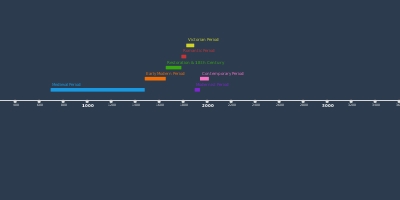nov 30, 1832 - Great Reform Act
Description:
When Arthur Wellesley, who was opposed to parliamentary reform, was ousted in 1830, Early Grey became prime minister. After two bills did not go through, a third one did in 1832 by result of Grey’s plan to persuade the King to using his powers to create more peers of Whigs in the House of the Lords. Tory’s peers abstained from voting allowing the bill to be passed however avoiding the creation of the peers.The Great Reform Act allowed primarily to transfer voting privileges from the nobility to the more heavily populated industrial towns, taking away the privileges at least half of the noble boroughs. However, this did bring about the exclusion of the rare women voters for Parliament elections as a voter was defined as “male” in the act. Also, while property qualifications broadened to included small land owners, farmers, and shop owners, most of working class men still could not vote.Added to timeline:
Date:
nov 30, 1832
Now
~ 193 years ago
